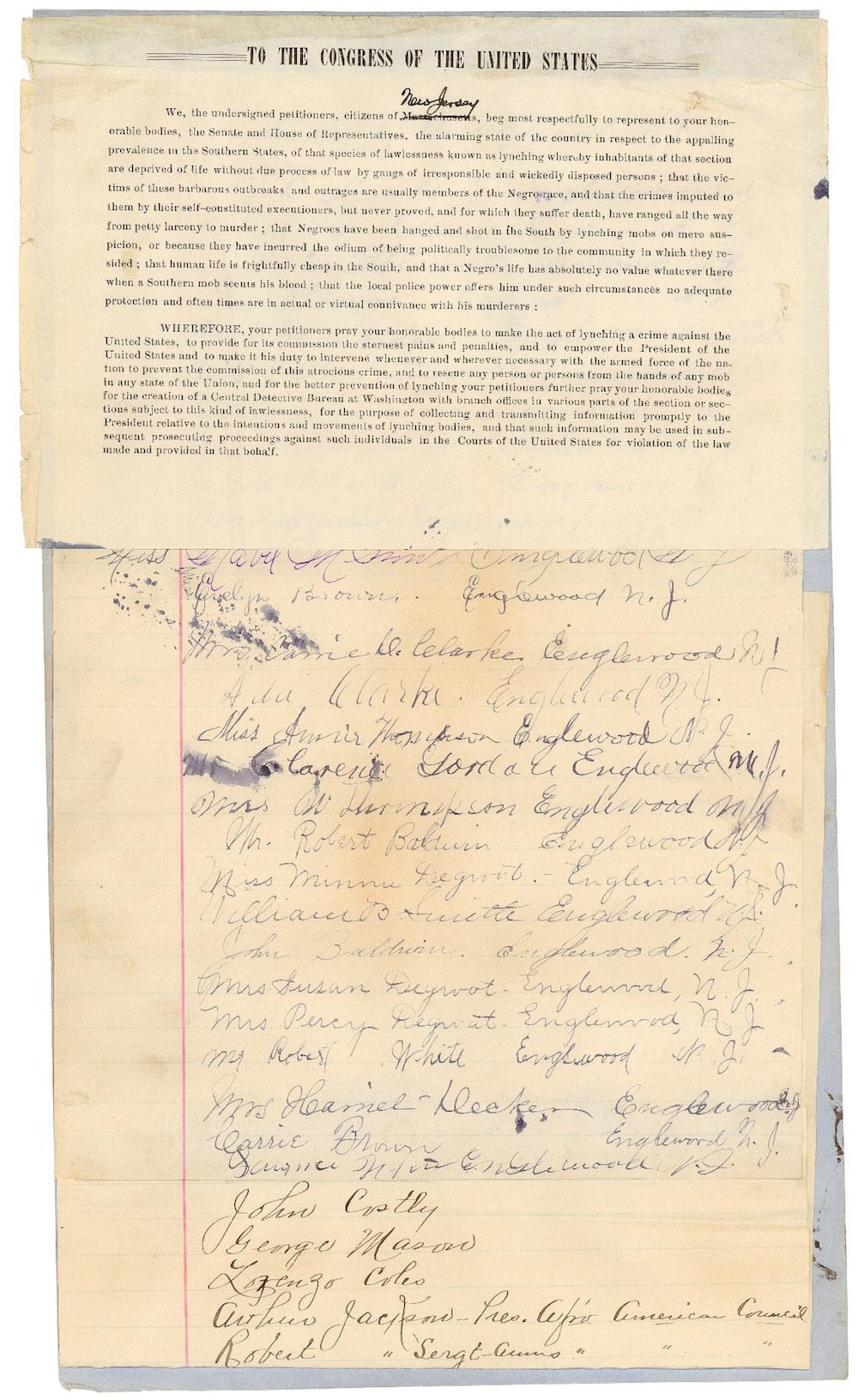The Vault is Slate’s history blog. Like us on Facebook, follow us on Twitter @slatevault, and find us on Tumblr. Find out more about what this space is all about here.
This petition from a group of citizens of New Jersey to Congress, submitted in February of 1900, asked for lawmakers to redefine lynching as “a crime against the United States.” The group asked that the government create “a Central Detective Bureau at Washington with branch offices” in states prone to lynching, in order to investigate these crimes and provide material for successful prosecution.
An array of organizations, white, black, and interracial, mounted anti-lynching campaigns in the late 19th and early 20th centuries. These included the still-familiar NAACP, ACLU and YWCA, as well as groups like the National Association of Colored Women, the United Negro Improvement Association, and the Association of Southern Women for the Prevention of Lynching.
While the petition doesn’t offer the name of the group responsible for rounding up these signatures, historian Rosalyn Terborg-Penn writes that African-American women “formed the backbone of the anti-lynching crusade,” acting as fundraisers, lobbyists, publicists, and liaisons to white female activists. (One of the most famous of these women was Ida B. Wells-Barnett, whose journalism on the subject was so potent as to put her in personal danger on multiple occasions.)
Despite the activists’ attempts over decades, lynching was never classified as a federal crime. Between 1882 and 1968, the Tuskegee Institute recorded, 4,742 people were lynched in the United States; 3,445 of those were black.

National Archives.